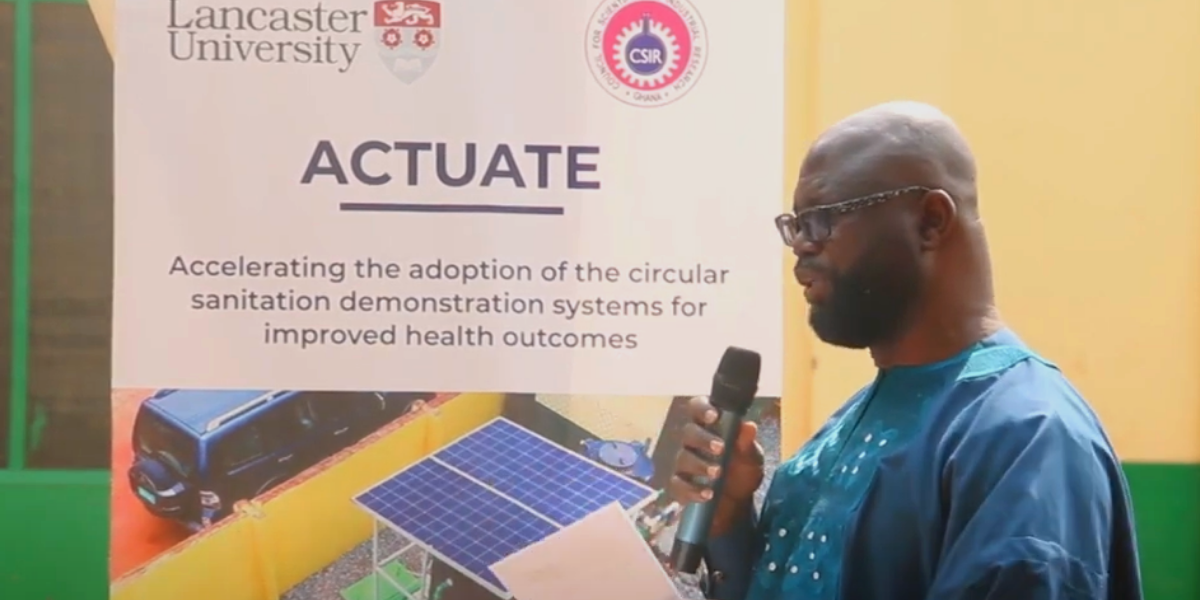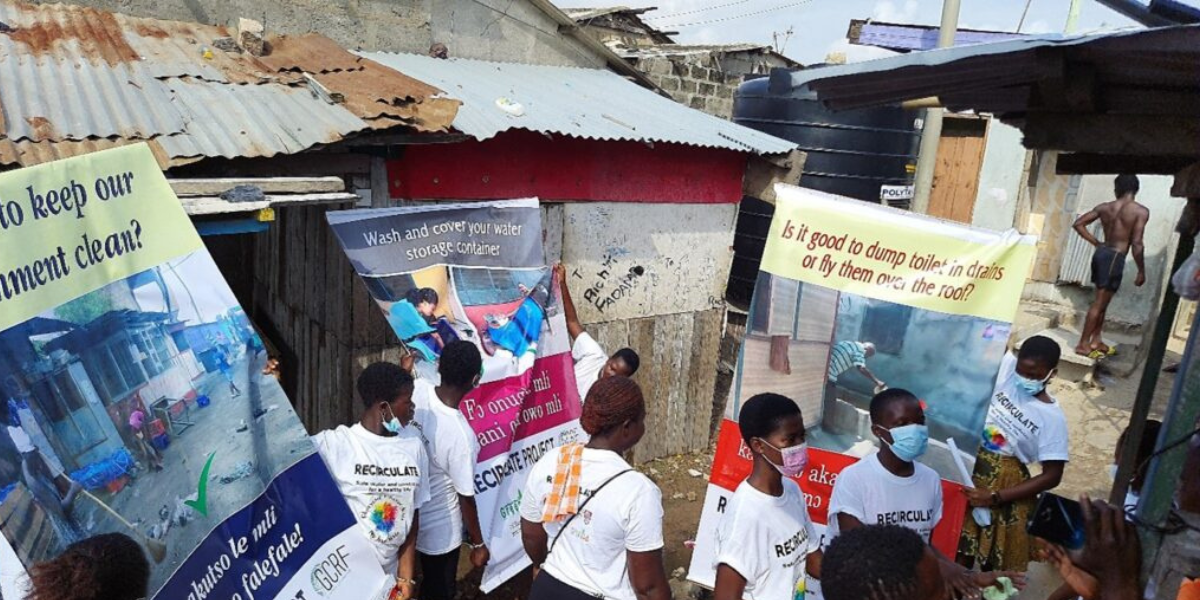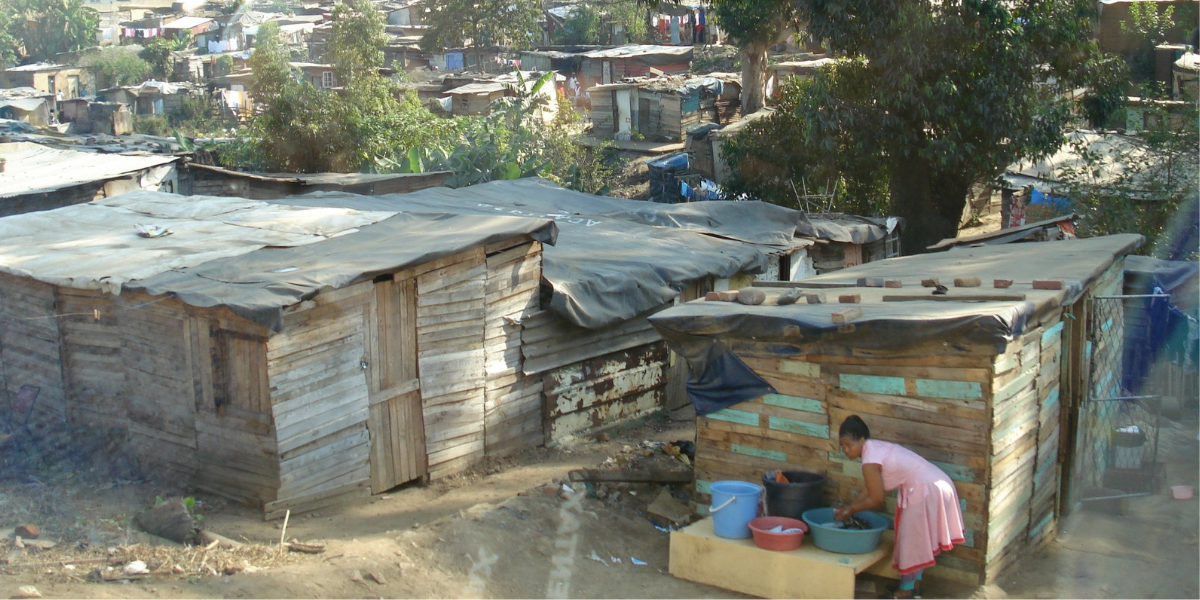
The Integrated Biodigester (IBD) at Umar Bun Hatab Islamic Basic School at Madina Zongo has been operating since September 2021, the project began in 2019 and has now been successfully completed. This January saw the commissioning and handing over ceremony of the plant by CSIR, Lancaster University and other partners. CSIR-IIR Director Dr Francis Boateng Agyenim and RECIRCULATE & ACTUATE Project Director Prof. Kirk Semple was in attendance with project partners, were amongst the speakers at this event.
Kirk Semple on the IBD project: “What this project absolutely highlights, is that it can’t be done by one discipline or one group of people, it involves genuine collaboration across many different research disciplines, not just sciences, not just engineering but also social sciences and entrepreneurial sciences. It also involves multi-sectoral collaboration and this is a fantastic example of that here.”
Francis Agyenim, director CSIR-IIR, on the IBD project: “We challenge the government to provide the enabling environment, we are not necessarily looking for monetary support, more importantly, can we have a policy that says that each school should have a biogas system?”
This treatment plant is the first of its kind in Ghana, not only unique in the use of local materials but also designed to fit into a limited available space in the school. The school uses the biofertilizer to improve and “green” its environment, while the gas supplies demonstrate the use of biogas in cooking and lighting.
The development of the IBD has been supported by the ACTUATE project, funded by the GCRF-EPSRC Global Research Translation Award linked to the RECIRCULATE project, also funded by GCRF. CSIR-IIR designed and constructed the IBD to resolve problems associated with fixed dome biodigesters (FDBDs), both the costs of construction and identifying and repairing digester leaks. The whole IBD concept started with a session with the ACTUATE team of scientists from Lancaster University and CSIR. From nothing more than a hand sketch of the digester system and a general scientific discussion of the digester system, they progressed to actual engineering design and then construction. Richard Bayitse, Senior Research Scientist CSIR-IIR, highlighted this work in his news article from October 2020, in ‘Biogas technology development in Ghana: contributions of CSIR’s institute of industrial research & the ACTUATE project‘.
Coverage of the ceremony on UNIVERS TV.




